Here Are 4 Manuka Honey Benefits That Will Change Your Life
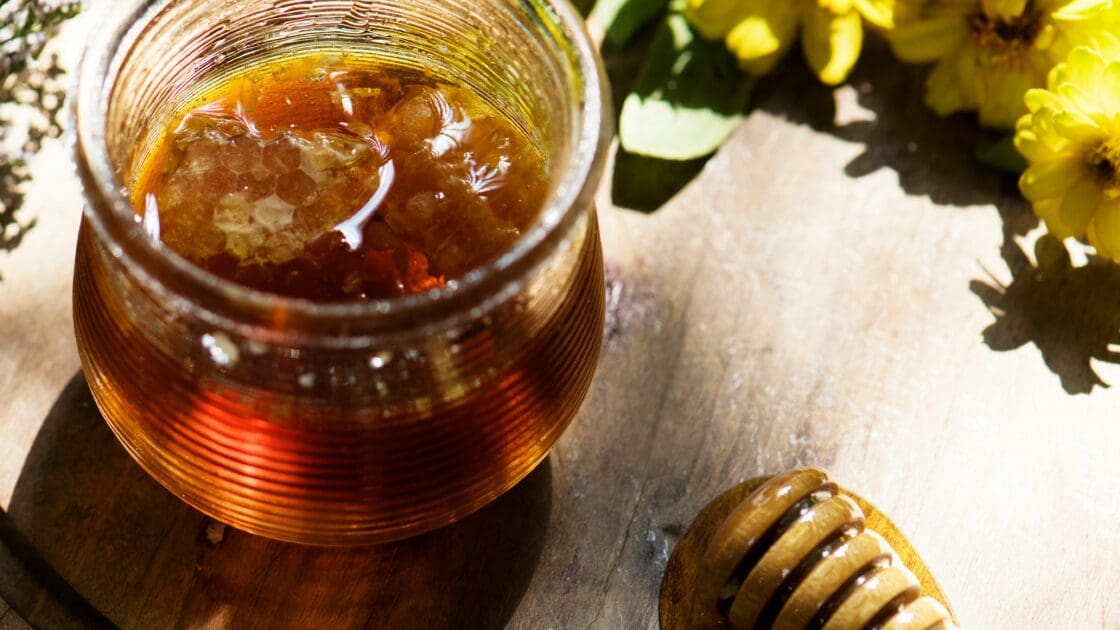
Raw honey is lovely on toast, sweet in tea, and even good for your skin, but there’s another type of honey that may be more exciting for natural health enthusiasts. If you haven’t heard of manuka honey, we’re pretty excited to tell you about it. Manuka honey benefits are seriously impressive even if you’ve long been a fan of raw and organic honey.
Sign up for the newsletter for more natural wellness tips.
What Is Manuka Honey And How Is It Different?
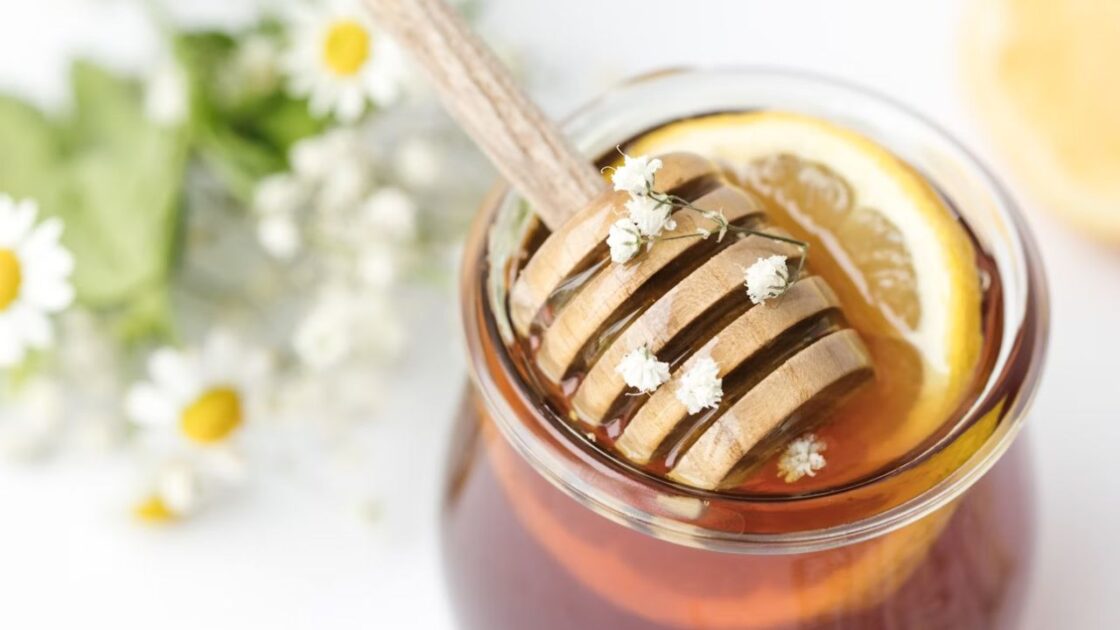
Manuka honey comes from New Zealand by bees that pollinate the flowers of the manuka bush. These flowers bloom just once a year, lasting for two to six weeks. All raw honeys have health benefits, but manuka comes from a bush that is similar to the tea tree bush and as a result, contains some pretty special properties. It also has a potency level, referred to as the Unique Manuka Factor (UMF), which other honeys do not have.
Organic manuka honey is ideal, but quite rare because it’s difficult to control where a honey bee pollinates, and therefore difficult to know if it comes into contact with any pesticides. Even in this pristine remote area of New Zealand, organic honey is hard to come by. That is why it’s difficult to verify that any honey, manuka or not, is truly organic.
While most types of honey have antibacterial properties, manuka honey may be even more powerful because it contains methylglyoxal, an antibacterial compound that’s present in the bush’s nectar. Other types of honey also have the antibacterial-boosting methylglyoxal compound, but in smaller quantities compared to manuka honey. Manuka honey also has a low pH level and a high sugar content which may hinder the growth of microbes, giving it an even more antibacterial amp.
“It’s an antibacterial because its enzymes create natural hydrogen peroxide,” says Amie Valpone, culinary nutritionist and author of the book Eating Clean: The 21-Day Plan to Detox, Fight Inflammation, and Reset Your Body. Valpone says that manuka honey has higher levels of nutrients and enzymes when compared with regular honey. “It’s great for acne, eczema, burns, IBS, SIBO [small intestinal bacterial overgrowth], sore throats, and allergies,” she says. “It’s rich in amino acids, B vitamins, calcium, copper, iron, zinc, and many other nutrients.”
1. Fights Superbugs

Antibiotic resistance is on the rise. Antibiotic-resistant I infections affect two million people a year, killing 23,000, According to the CDC.
However, according to a study published in 2020, manuka honey may be a powerful topical treatment for antibiotic-resistant infections1.
2. Treats Burns and Other Wounds

A study published in 2025 found that manuka honey has antibacterial qualities that make it an effective treatment for some wounds2. Another study in the same journal found that manuka honey could help treat diabetic wounds, which tend to heal slowly.
3. Treats Plaque and Gingivitis

A study published in 2022 found that manuka honey may help reduce plaque and treat gingivitis3. The study also examined the positive manuka honey benefits for dental caries, also known as tooth decay.
4. It’s an Anticancer Agent
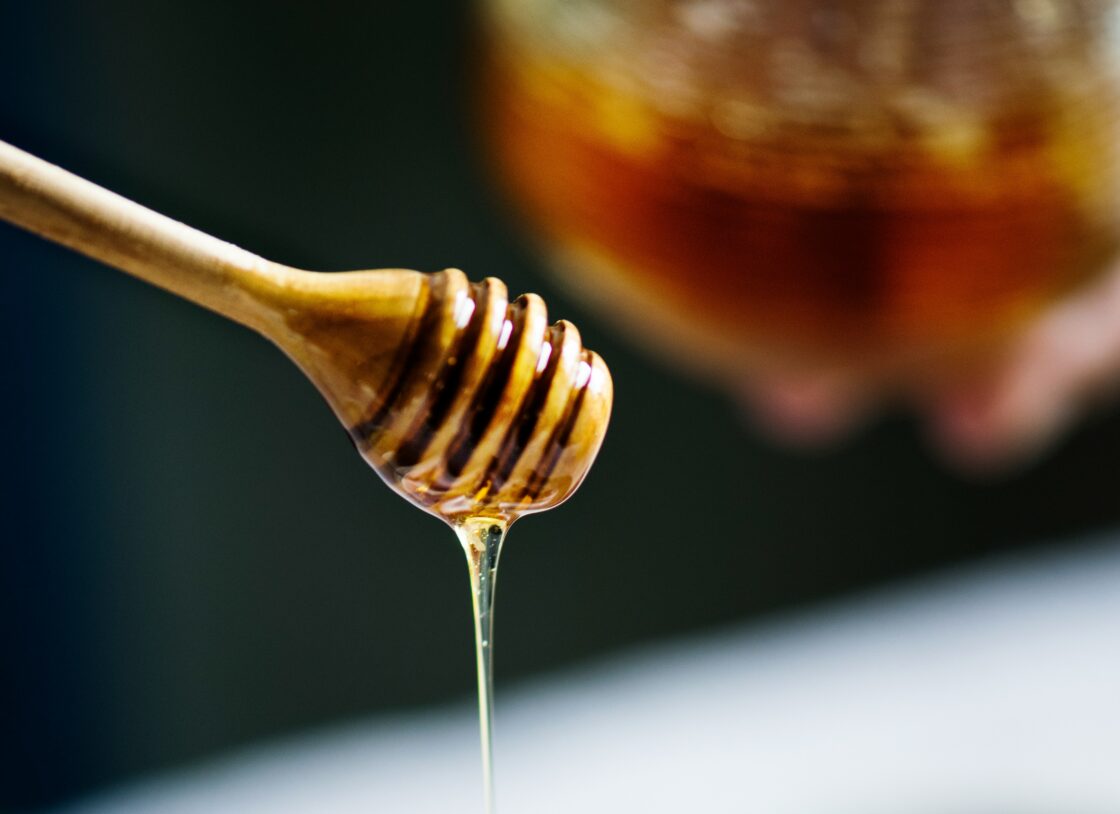
Studies found that manuka honey may have an anti-cancer effect by helping the immune system fight back. It has antimutagenic, antioxidant, and anti-inflammatory qualities that make it effective, according to the research.
Specifically, a study published in 2024 found that manuka honey could potentially be an alternative, natural option for breast cancer prevention and treatment4.
Manuka Honey Uses

Manuka honey uses rival apple cider vinegar in terms of versatility and effectiveness. From medicinal to nutrition and beauty, here’s what it treats:
- Aging
- Acid reflux
- Wounds
- Burns
- Acne
- Eczema
- Infections
- Plaque
- Gingivitis
- Sore throats
- Allergies
Eating Manuka Honey
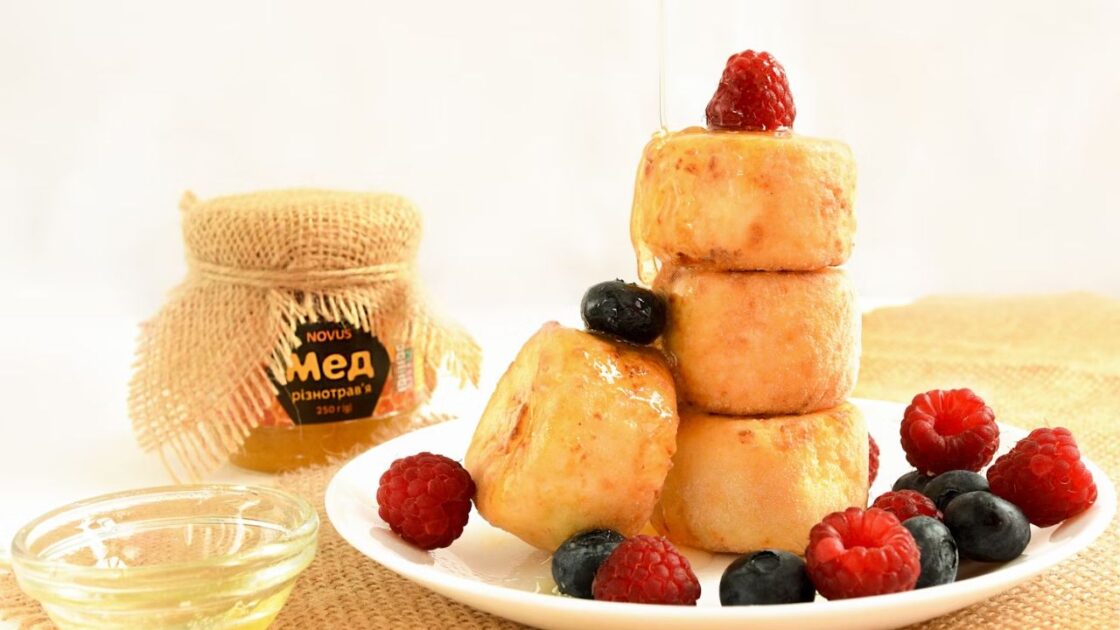
Manuka honey is a rich source of nutrition, containing amino acids, B vitamins, calcium, copper, iron, magnesium, potassium, sodium, and zinc. Not to mention that it helps with acid reflux and general upset stomach. Add a teaspoon of honey to your morning tea or top yogurt and granola with a delightful drizzle. Or just enjoy it by the spoonful.
Manuka Honey for Skin

Manuka honey repairs and hydrates your skin. Its anti-inflammatory qualities help reduce skin redness due to eczema and acne. And its ability to even out your skin tone make it a potent anti-aging agent.
For soft, glowing skin, just make a simple manuka honey mask. Just spread a thin layer of honey on your face, roughly around one teaspoon’s worth, after washing it. Wait 30 minutes before rinsing with warm water.
You can also use manuka honey for on-the-spot acne treatment. Just apply a small amount to a pimple or whitehead after cleaning your face and cover it with a bandage. Let it sit for around 30 minutes and rinse with warm water.
Best Manuka Honey

The Unique Manuka Factor (UMF) Honey Association rates the quality of manuka honey. The UMF grading system has two components. First, it ensures that the honey is truly manuka honey and then the UMF rating grades the purity and quality of the product. UMF actually tests the antibacterial performance and phenols in the product.
Look for the UMF Trademark on all manuka honey that you buy. Then look for a manuka rating. Anything below 5 isn’t medicinal. A rating between 10 and 15 is very high quality. This popular brand consistently rates 13+.
Where to Buy Manuka Honey
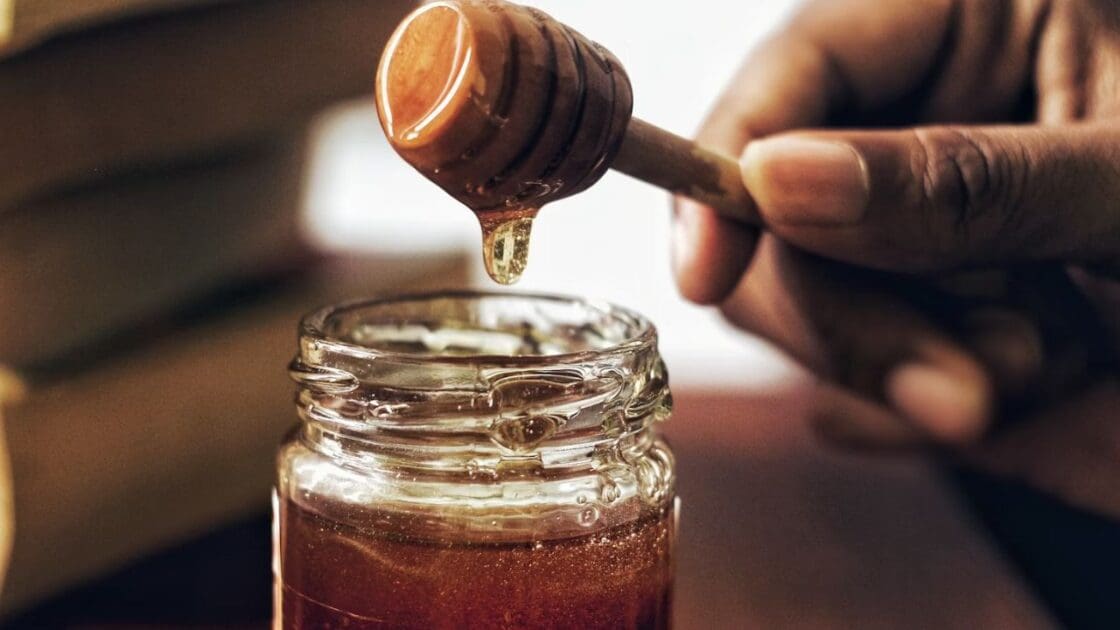
The UMF rating system takes some of the guessing out of buying manuka honey. But in terms of brands, some go even further to produce the good stuff. Wedderspoon, for example, tests the actual pollen to ensure that there is a certain amount of pollen from the manuka plant.
according to the company, they only warm up the honey for packaging. That way it never gets hotter than it would in the actual hive. Other high-quality brands include Kiva Raw Manuka Honey, which costs around $70 and individually tests every batch of manuka honey.
Read More on Organic Authority

Powerful Antibacterial Manuka Honey Benefits to Make You Love Bees Even More
Can You Use Manuka Honey For Natural Skin Care?
WTH is Honey Water? And Should it Be Your New Bev of Choice?
Research:

